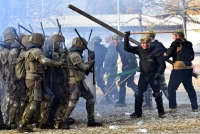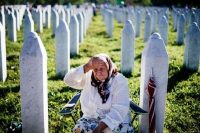
Bosnia’s U.S.-Authored Constitution Has Been a Disaster
On Aug. 29, the European Court of Human Rights (ECHR) delivered a landmark decision against the state of Bosnia and Herzegovina, ruling by a 6-1 majority that the country’s constitution and its dominant ethnic power-sharing system grossly violated basic rights to equal democratic representation. Specifically, the court ruled that Bosnia’s constitution had unfairly limited the right to vote and be elected for large segments of the population through a “combination of territorial and ethnic requirements” that collectively amounted to “discriminatory treatment”.
Bosnia’s constitution is a strange thing. It is not a stand-alone social contract but Annex IV of the U.S.-brokered Dayton Agreement that ended the Bosnian War (1992-1995).… Seguir leyendo »













